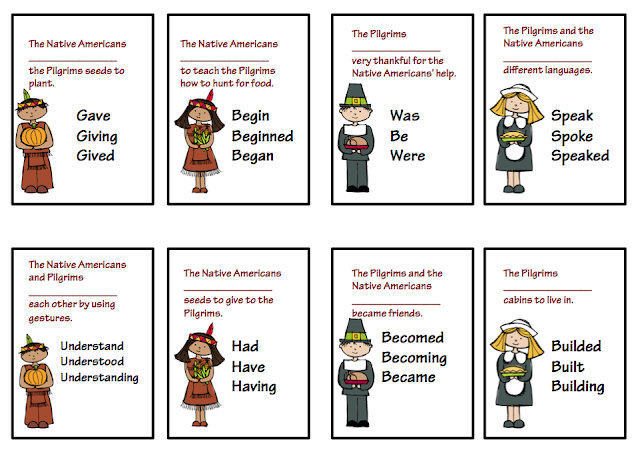Useful Vocabulary for your Summer Holidays
VERBS
To
arrange and confirm a place on a flight, a room in a hoter, a table in a
restaurant or a ticket for an event in the future.
e.g. We're going to
book seats on the early flight. (=Θα κλείσουμε/κρατήσουμε θέσεις στην πρωινή πτήση.)
 Board = get on a vehicle/plane/ship so that I reach my
destination. We mostly use the
expression get/be on board.
Board = get on a vehicle/plane/ship so that I reach my
destination. We mostly use the
expression get/be on board.
e.g. The entire class was on board for the excursion to
the park.
NOTE: The word boarding- pass (=the airplane/ship ticket)
derives from the verb board.
e.g. All passengers must present their boarding
passes before entering the airplane.
Depart= To go away or leave, especially on a journey.
(noun: departure)
e.g. This
train always departs on time.
e.g. This train departs from New York at 3:15 pm.
Arrive (at)= reach my destination/a place, especially at
the end of the journey. (noun: arrival)
e.g. We arrived at London with half an hour delay, due to
the bad weather conditions.
Accommodate=host/ provide a place to stay in. (noun: accommodation)
e.g. A luxurious hotel will accommodate us during our vacation.
Transfer= The act of moving someone or something from one
place to another.
e.g. The travel agancy tranfered all our belongings to the
place of out accommodation.
Take off= depart (for plane)
e.g. The plane takes off at 4:00 but the gate closes half an hour earlier.
Splash out= a phrasal verb meaning that you can spend
money freely.
e.g. We splashed
out last night and went to a fancy restaurant, as it was our last night at the
island.
NOUNS
 Destination: the place where someone is going or a popular place for vacations.
Destination: the place where someone is going or a popular place for vacations.e.g. You may need to change trains and take a bus before you reach your destination.
e.g. London is a famous tourist destination.
 Travel Documents: all the necessary documents you would need to take with you on a holiday e.g. passport or ID card, driving license, flight/bus/ train tickets, visa confirmation etc.
Travel Documents: all the necessary documents you would need to take with you on a holiday e.g. passport or ID card, driving license, flight/bus/ train tickets, visa confirmation etc.Reservation: an arrangement/ booking in which something like a seat on a plane, a room at a hotel or a table in a restaurant is kept for you.
e.g We should make a reservation at least a month in advance so that we be sure we’ll have a room to stay in this hotel.

Leaflet = flyer: a small piece of paper that gives you information about a trip or advertises something.
e.g. The new tourist agency distributed leaflets to promote its services.

Brochure: a type of small magazine that contains pictures and information about a product or a company.
e.g. The information pack consists of a brochure and a map of the city we’ll visit.

Travel guide: A guide book or travel guide is "a book of information about a place designed for the use of visitors or tourists".
Tourist attraction = monument/landmark: a famous place with historical, political or cultural meaning that attracts a large amount of foreign people.
e.g. Taj Mahal is a tourist attraction in India.

Tour guide: the person who shows tourists around the city.
e.g. The tour guide took the visitors to see many local attractions.
Accommodation: a room or building in which someone may live or stay. Different types of accommodation include apartments, hotels, guesthouses and backpacking hostels.
Types of accommodation
 Hotel
Hotel
A hotel is generally the largest of all accommodation types.There is typically a common reception area, and rooms generally open directly onto a hallway.Hotel types:
1.Half-Board: if you request ‘half-board’ at a hotel, breakfast and dinner would be included in the hotel price (as part of the package).
2.Full-Board: if you request ‘full-board’ at a hotel, that would include all three meals (breakfast, lunch and dinner) in the price of your accommodation.
 Bed & Breakfast
Bed & Breakfast
A Bed and Breakfast (B&B) is a private home in which guests can be accommodated at night in private bedrooms (which may or may not have private bathrooms). Breakfast is included in the price. Backpacker Hostel
Boutique Hotel
A boutique hotel is a 5 star establishment providing all the features and facilities of a normal hotel, in a unique and exclusive style.
Guest House
A guesthouse is generally a private home which has been converted for the dedicated and exclusive use of guest accommodation.
Lodge

A lodge is an accommodation facility which is located and designed to optimize the feeling of being closely in touch with nature. An outdoor experience should be offered at the lodge, such as guided walks, game drives etc.
Private Home
A private home not dedicated for full time occupation of guests, but is a private house or apartment which is temporarily available for rental, often during peak tourism seasons.Resort
 A spread out collection of single or double story accommodation units. Similar to a hotel in that it offers a wide range of facilities.
A spread out collection of single or double story accommodation units. Similar to a hotel in that it offers a wide range of facilities.

























